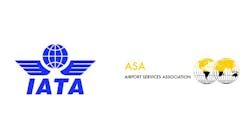Flight Safety Foundation Statement on New Personal Electronic Device Restrictions
ALEXANDRIA, Va. - Recent decisions to ban personal electronic devices (PEDs) larger than a cell phone or smart phone in the passenger cabins of select international commercial flights introduce another risk by requiring these devices to be transported in the cargo hold in checked baggage.
While current International Air Transport Association (IATA) guidance says that the lithium batteries contained in these devices may be transported in checked bags under certain conditions, the new requirement likely will significantly increase the number of PEDs carried in cargo holds on the affected flights.
The concern of the international aviation community is that there have been occasions when the lithium batteries in PEDs have suffered thermal runaway and caught fire. To mitigate this risk, cabin crew have been trained in how to manage these situations. With the transport of PEDs on certain flights now restricted to the cargo hold, along with other potentially flammable items within checked-in baggage, a known and managed risk has effectively been transferred to another part of the aircraft where, should thermal runaway occur, it is rendered inaccessible to cabin crew.
Flight Safety Foundation urges the industry to fully consider the consequential risk associated with the transport of these devices within checked-in baggage. In most cases, when thermal runaway occurs, the PEDs have been turned on. Before the devices are placed in checked baggage, they must be powered off, be protected from accidental activation, and be protected from damage. The risk, however, that some of these items may be left on cannot be overlooked.
The increased risk from possibly concentrating hundreds of these devices must be considered, along with the risk from stowing them next to other dangerous goods. Our concern is the creation of high densities of lithium batteries in cargo holds without adequate protection.
Also, the new regulations and existing IATA guidance should be communicated clearly to passengers and staff to ensure that passenger items prohibited in the cargo compartments, such as spare lithium batteries, are not packed in checked baggage due to the mistaken belief that they are not allowed in the cabin.
Flight Safety Foundation is an independent, nonprofit, international organization engaged in research, education, advocacy and publishing to improve aviation safety. The Foundation's mission is to be the leading voice of safety for the global aerospace community.


